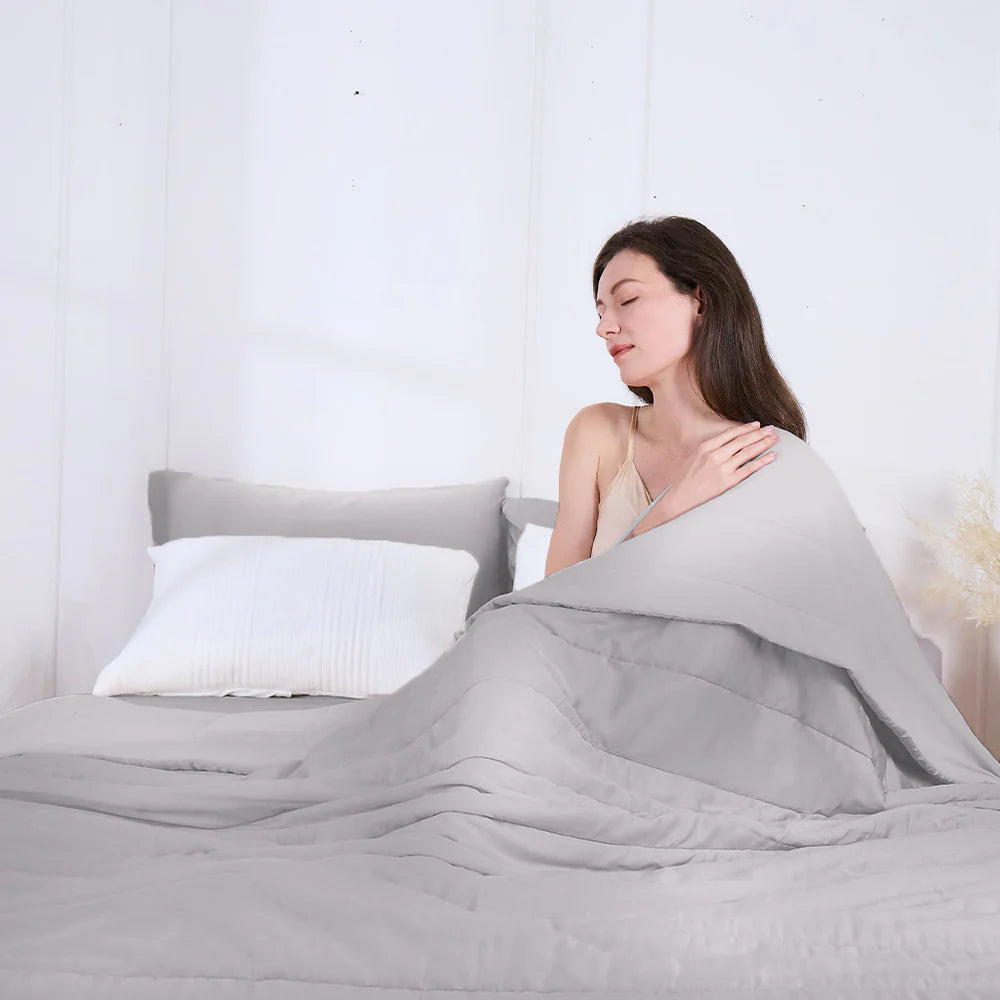Have you ever woken up with a sore jaw after sleeping? This discomfort can be frustrating and disruptive, making mornings less enjoyable. But what causes jaw soreness during sleep, and what can you do to alleviate and prevent it?
In this article, we’ll explore the common reasons for jaw pain after sleeping, provide practical solutions, and offer tips to ensure you wake up feeling refreshed.
Why Do You Wake Up with a Jaw Sore After Sleeping?
Jaw soreness after sleeping often relates to how you sleep or what happens while asleep. Several factors can contribute to waking up with discomfort in your jaw:
Teeth Grinding or Clenching (Bruxism)
One of the most common causes of jaw soreness is bruxism, where individuals unconsciously grind or clench their teeth during sleep. This creates intense pressure on the jaw muscles and joints, leading to soreness in the morning.
Incorrect Sleep Position
How you position yourself during sleep can also contribute to jaw pain. Sleeping on your stomach or pressing the jaw against the pillow for long periods can strain the muscles, leading to a sore jaw upon waking.
Temporomandibular Joint (TMJ) Issues
Disorders affecting the temporomandibular joint, which connects the jawbone to the skull, can lead to discomfort while sleeping. If you notice clicking, popping, or pain while chewing or opening your mouth, TMJ issues might cause your jaw to be sore after sleeping.
Stress and Tension
Emotional stress can often manifest physically, and the jaw is one of the first places tension builds up. If you're stressed or anxious, you may unknowingly clench your jaw while you sleep, causing soreness.
Sleep Apnea
People with sleep apnea may experience jaw soreness after sleeping due to the tension in their facial muscles while repeatedly waking up throughout the night. This condition requires medical attention and may be contributing to your discomfort.
Effective Ways to Relieve Jaw Soreness After Sleeping
Waking up with a sore jaw doesn't have to become a daily occurrence. Here are some ways you can find relief:
-
Night Guards for Teeth Grinding
Wearing a night guard can help if your jaw is sore after sleeping due to teeth grinding. This simple device cushions between your teeth, reducing the pressure on your jaw and preventing further damage. -
Change Your Sleeping Position
Switching to a sleep position that alleviates jaw pressure can be beneficial. Sleeping on your back is generally recommended, as it keeps your head and neck aligned, preventing unnecessary strain on your jaw. -
Jaw Exercises and Massages
Gentle jaw exercises and massages can help reduce soreness and tension. Simple stretches such as opening and closing your mouth or lightly massaging the jaw area before bed can relieve some of the discomfort caused by clenching. -
Relaxation Techniques Before Bed
Stress management techniques such as deep breathing, meditation, or gentle stretches before bedtime can prevent clenching or grinding, leading to a jaw sore after sleeping. Incorporating these techniques into your nightly routine can make a big difference. -
Invest in a Supportive Pillow
The right pillow can improve your sleep quality and reduce jaw pain. For instance, the AirCell Cooling Pillow is designed with a honeycomb structure that provides 360° heat rejection, keeping you cool throughout the night.
It offers flexibility and targeted pressure relief, making it ideal for both back and side sleepers. Its supportive design can alleviate jaw strain by promoting better neck and head alignment, helping reduce the chances of waking up with a sore jaw.

Preventing Jaw Soreness During Sleep
Prevention is always better than cure. To avoid waking up with a jaw sore after sleeping, here are a few practical tips:
-
Create a Calming Sleep Environment
A calm environment can help reduce stress and tension. Make your bedroom a comfortable, distraction-free space, and ensure you get adequate rest to avoid physical tension in your muscles, including the jaw. -
Stress Reduction Throughout the Day
Managing stress during the day can prevent clenching or grinding at night. Consider integrating stress-relief practices such as yoga, mindfulness, or regular exercise into your daily routine. A less tense mind leads to less tension in the jaw during sleep. -
Stay Hydrated
Dehydration can cause muscle cramps and tension, including in your jaw. Ensure you stay hydrated throughout the day to keep your muscles functioning properly and prevent soreness in the morning. -
Use the Right Sleep Accessories
Along with a supportive pillow, using accessories like a mattress that aligns with your sleep position can help reduce discomfort. A proper mattress and pillow setup ensures your head, neck, and jaw are adequately supported, relieving tension. -
Regular Dental Checkups
If teeth grinding is making your jaw sore after sleeping, it’s essential to have regular dental checkups. Your dentist can provide professional advice and tools, like night guards, to help manage the condition.

When to Seek Medical Attention
While many cases of jaw sore after sleeping can be managed with lifestyle changes, there are times when professional help is needed.
If your jaw soreness is persistent or worsening, or if it's accompanied by other symptoms like headaches, earaches, or trouble chewing, you should consult a healthcare provider. TMJ disorders or sleep apnea may require targeted treatments that a dentist or doctor can provide.
Additionally, if your jaw pain is disrupting your sleep or daily life, seeking help sooner rather than later can prevent long-term damage and relieve you.
Conclusion
Waking up with a jaw sore after sleeping can be inconvenient, but understanding its causes and implementing simple remedies can help you find relief. Whether it’s adjusting your sleep posture, wearing a night guard, or reducing stress, small changes can make a big difference in how you feel when you wake up.
Investing in supportive accessories can enhance your overall sleep quality and prevent unnecessary jaw strain. If the pain persists, don’t hesitate to seek medical advice to get the appropriate treatment.

